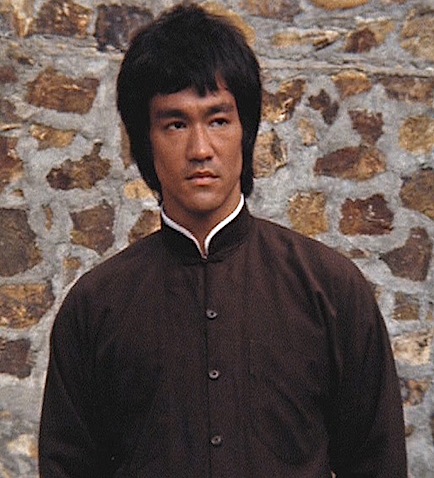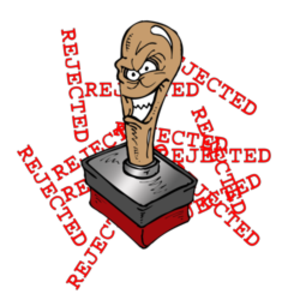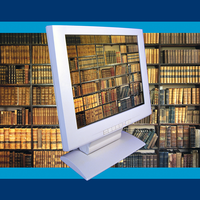The Greatest Help is Self-Help

“I have come to discover through earnest personal experience and dedicated learning that ultimately the greatest help is self-help; that there is no other help but self-help — doing one’s best, dedicating oneself wholeheartedly to a given task, which happens to have no end but is an on-going process.”
–Bruce Lee (Chinese-American Martial Artist, Actor, Director and Author, 1940-1973)
Becoming a Worthwhile Person

“If you wish to achieve worthwhile things in your personal and career life, you must become a worthwhile person in your own self-development.”
–Brian Tracy (Canadian-born American Author and Expert on Business and Personal Development, 1944-)
Overcoming Rejection

I am sure that most of us have faced some form of rejection at some time or other in our lives. People with high self-esteem seem better able to take rejection in their stride, but usually only if it is “earned.” Simply trying artificially to build your self-esteem rather than having built it on a platform of past achievement, will probably not work very well.
New research in the journal Psychological Science from UC Berkeley indicates that this does not mean that people with low self-esteem are doomed to respond defensively to criticism and rejection. The key seems to be that people who are better at controlling their impulses are less vulnerable to rejection.
There were 38 female and 29 male participants in the study. The first completed the Rosenberg self-esteem scale, one of the most widely used self-esteem measure in the social sciences. They then completed a questionnaire on their ability to focus on tasks at hand without distraction. The subjects were arranged into two groups – low self-esteem and normal-to-high self-esteem – based on their scores on the Rosenberg scale.
Each of the volunteers then viewed images showing positive, neutral, negative and rejection themes while being subjected to sporadic loud noises. A startle probe measured the force of their eye-blinks in response to the abrupt sounds. Eye blinks are a good measure of the startle response and correlate fairly well with the activation of the “fight or flight” reaction.
As anticipated, all the participants blinked more strongly when the loud noise was paired to such negative images as dead animals or mutilated bodies. However, the people with low self-esteem blinked more forcefully in response to pictures portraying themes of rejection loneliness and alienation. Paintings with negative themes or acceptance themes, such as lovers embracing, did not elicit the same response in low self-esteem people.
In other words the powerful was in which rejection activates the threat system in people with low self-esteem suggests that their fear of rejection runs extremely deep and engages neurological systems involved in reacting to a threat.
On the other hand, those with low self-esteem who scored higher for attention control, which included the ability to focus, were able to modulate their immediate reactions to rejection.
Some previous work has suggested that self-esteem is part of a primitive emotional warning system that warns us if we are in danger of being socially excluded. While the evolutionary function of this detection system was originally intended to motivate people to stay socially connected, the constant anticipation of rejection can create problems, with the system being triggered by the merest whiff of rejection. They may become hypersensitive and have a brain that generates a cascade of defensive reactions if they sense any kind of disapproval.
Although this is a small study, the evidence is that rather than teaching self-esteem skills, the solution for them might be to improve their abilities to focus, concentrate and regulate their internal states.
In other words develop some specific forms of self-control and resilience.
For many people this may be the most effective way of helping them to cope with disappointment and maintain close relationships.
“No man is free who is not master of himself.”
–Epictetus (Phrygian-born Greek Stoic Philosopher, c.A.D.55- c.A.D.135
“It is not the mountain we conquer but ourselves.”
–Sir Edmund Hillary (New Zealand Mountaineer and Explorer, 1919-
“Mind control is not one’s birthright. The successful few owe their success to their perseverance.”
–Ramana Maharshi (Indian Hindu Mystic and Spiritual Teacher, 1879-1950
“The cyclone derives its powers from a calm center. So does a person.”
–Norman Vincent Peale (American Cleric, Writer and Self-Help Expert, 1898-1993)
Choosing To Be Happy?

For the last two decades, one of the central tenets of the self-help movement has been that we can choose to experience or to be whatever we want.
Many psychologists have also said that human happiness or subjective well-being is largely independent of our life circumstances. Therefore wealthy people are no happier than people of more limited means; married people aren’t much happier than single people and healthy people aren’t much happier than sick people. The keys to happiness are supposed to lie within us, in our attitudes and perceptions.
If these theories are correct – and they are theories – we would predict that changes in our life circumstances would not have long-term effects on our happiness. This has indeed been the dominant model of subjective well-being: people adapt to major life events, both positive and negative, and our happiness stays pretty much constant through our lives, even if it is occasionally perturbed by some big gain or loss. According to the theory, winning the lottery may make you happy for a little while, but it won’t make you happier in the long run.
Not unless you have made the choice to be happy.
Similarly, while a divorce or major illness might throw your life into turmoil for a while, your happiness level will eventually return to where it was before. The idea has been that of sense of subjective well-being has a set point, and that a change in beliefs or attitudes can change the set-point.
But is this true?
New research, and reexamination of old research, is challenging some of the claims of set-point theory.
In this month’s issue of Current Directions in Psychological Science, Richard E. Lucas of Michigan State University and the German Institute for Economic Research, reviews some recent studies suggesting that adaptation to changing life circumstances only goes so far. As he says, “Happiness levels do change, adaptation is not inevitable, and life events do matter.”
To study adaptation, Lucas and his colleagues used data from two large national prospective panel studies, one in Germany and the other in Great Britain. Unlike most previous studies of adaptation, these data were able to capture levels of life satisfaction both prior to and after major life events like marriage, divorce, unemployment, and illness or disability.
Lucas found that not all of life events are created equal. For example, most people adapt quickly to marriage. They have peak in subjective well-being at the time of getting married, but within about two years, their happiness levels return to their previous levels.
People usually adapt to losing a spouse, but it takes a lot longer: on average about seven years. People who get divorced and people who become unemployed, however, do not usually return to the level of happiness that they experienced before. The same can be said about physical debilitation. Numerous recent studies have demonstrated that major illnesses and injury result in significant, lasting decreases in subjective-well being.
But Lucas also found that individual differences play an important role. There is a great deal of individual variation in the degree to which people adapt to what life throws at them. We know that life events run in families: there is a genetic predisposition to having multiple life events. People who are destined to experience certain life events differ in their subjective well-being from those who do not, even before the occurrence of those events. As an example, people who were happy 5 years before their marriage, stay married, and also stay happier than those who are destined to marry and get divorced.
Lucas stresses that his findings do not undercut the importance of adaptation processes. Some degree of adaptation necessarily protects us from prolonged emotional states that may be harmful, and helps us attune to novel threats to our well-being rather than dwell on ones we are familiar with. Adaptation also helps us detach from goals that have proven unrealistic.
So what does this mean to us personally? It is rather like the statement attributed to the German priest and scholar Martin Luther, “Pray as if everything depends on God. Then work as if everything depends on you.”
- Make the choice to be happy, but that choice will, on its own, achieve little unless you also work to change your life circumstances
- The choice to be happy will not be crowned with success unless you really feel that you want it deep down inside: it has to be a core desire
- Not everyone can make the choice because they are not wired that way
- Do not be disheartened if you make the choice to be happy and things don’t quite work out. Some pop psychologists and gurus have told their followers that if they failed to find happiness, then they were inadequate, or did not want it enough. That kind of nonsense can cause needless guilt and suffering. Sometimes life chucks too much at you at once, and it’s okay to be unhappy. It does not mean that you are a wimp, or that you didn’t want happiness enough
- The best way to deal with a world that throws a lot at you is to learn the art and science of resilience and acceptance
But also remember something else: the great sages have always taught that happiness is our natural state, and the art of living is to return to that natural state.
But most importantly, to help others get there as well.
“Action may not always bring happiness; but there is no happiness without action.”
–Benjamin Disraeli, 1st Earl of Beaconsfield (English Statesman, Novelist and, in 1868 and from 1874-1880, British Prime Minister, 1804-1881)
“Forgiveness is the key to happiness.”
–A Course in Miracles (Book of Spiritual Principles Scribed by Dr. Helen Schucman between 1965 and 1975, and First Published in 1976)
“Happiness is the very nature of the Self; happiness and the Self are not different. There is no happiness in any object of the world.”
–Ramana Maharshi (Indian Hindu Mystic and Spiritual Teacher, 1879-1950)
Biomedical Journals and Open Access

I have written before about my enormous admiration for the global attempt to make research freely available to everyone. This is such an important step toward patient empowerment and greater transparency in science and medicine.
There is currently an online petition to support free and open access to European research, and if you also believe in the principles of integrity, transparency and personal empowerment, you may want to consider signing.
I was gratified to see how many major journals are now making articles immediately and permanently available online
without charge. A number of journals require an institutional or a
personal subscription to view other content, such as reviews or paper
reports. Free trial subsciptions to these journals are available.
This seems to be the most up-to-date listing, and everyone involved really deserves our gratitude. I shall continue to update this list as more journals become involved.
| A B C D E F G H I J K L M N O P X Y Z |
||
|
People Watching
For the eighth time in a week your humble reporter found himself at the Atlanta airport. Ahem, I should say, of course, the Hartsfield-Jackson Atlanta International Airport.
It’s a perfect place for people watching. New statistics out today have shown that in 2006 it held its position as the world’s busiest airport, followed by O’Hare in Chicago and London’s Heathrow.
I was chastened to realize that I have been in every one of the top ten airports in the last year or so. For people who like such things, here’s the list of the top ten busiest airports with the number of millions passengers who’ve been through each:
- Atlanta 84.8
- O’Hare 76.2
- Heathrow 67.5
- Tokyo’s Haneda 65.2
- Los Angeles International 61
- Dallas/Fort Worth 60
- Paris, Charles de Gaulle 56.8
- Frankfurt 52.8
- Beijing Capital International Airport 48.5
- Denver International 47.3
Spending a lot of time in airports can stress the physical, psychological and subtle systems of the body, as well as making it easy to lose touch with your spirituality.
I’m going to let you in on a secret: for over two decades I had learned and then taught methods for building resilience and bouncing back from adversity. But it wasn’t until I started flying a quarter of a million miles a year that I got the chance to test and refine the methods under the most extreme conditions. Engineers often talk about taking their constructions and “testing them to destruction.” I did the same thing with the methods I teach. If they couldn’t help people cope with flights, illness or job loss, then I discarded them and looked for something else. And if they didn’t also have another piece – a way to grow in response to adversity, they were out too.
The result has been a whole raft of techniques and methods that have been tried and tested again and again. Over the next year I shall be rolling out a great many of these techniques in a novel format.
Watch this space!
“Every adversity carries with it the seed of equal or greater benefit.”
–Napoleon Hill (American Founder of Personal Success Literature, 1883-1970)
“From the withered tree, a flower blooms.”
–Zen Buddhist Saying
“How you handle adversity in the workplace tends to have much more impact on your career than how you handle the good stuff. The people who know how to overcome adversity are the ones who rise to the top of the organization."
— Martin E. P. Seligman (American Psychologist, Professor at the University of Pennsylvania and Former President of the American Psychological Association, 1941-)
“Adversity is the diamond dust with which Heaven polishes its jewels.”
— Robert Leighton (Scottish Presbyterian Bishop and Classical Scholar, 1611-1684)
“Adversity has the effect of eliciting talents which in prosperous times would have lain dormant.”
–Horace (a.k.a. Quintus Horatius Flaccus, Roman Poet and Satirist, 65-8 B.C.E.)
“Adversity is not undesirable. Because, it is only when you are down and out in life that you can realize its true value.”
–Swami Ramdas (a.k.a. Papa Ramdas, Indian Spiritual Teacher, 1884-1963)
Open Access

I have had a number of kind comments about my brief piece concerning the revolution in open access to information.
Few people have yet realized the impact that it will have on our lives.
I am most honored to have just received this note from Peter Suber:
Hi Richard: PLoS is part of a larger movement for open access to
peer-reviewed research literature, and a lot has happened since PLoS
was launched in 2001. For details, see my Timeline [ http://www.earlham.edu/~peters/fos/timeline.htm ], and for daily updates see my blog, Open Access News [ http://www.earlham.edu/~peters/fos/fosblog.html ].
I have had a good look at Peter’s material, and I have also subscribed to his blog, so it will now appear on the left-hand side of this blog under “What I’m reading,” so you can access his writings without having to dart all over the place.
The entire open access movement encompasses a great deal more than just scientific and medical research, and is all precisely aligned with my aim of achieving greater personal empowerment, so that you can take control of your life, your health, your future and the legacy that you leave behind.
Several correspondents have agreed with my point, that the next imperative is to teach people how to use this information.
Checking Data
Following my brief piece on the sun and some of its potentially adverse effects, someone was kind enough to leave this comment:
"Don’t forget that skin cancer is cured by melatonin and vitamin A.
Reference 1
Reference 2
I am extremely grateful that he wrote, because it gives me the opportunity to illustrate the point about checking the data. The person who wrote was obviously motivated by a desire to help, but he had been given some information that was not correct.
I pulled out both of these papers and discovered that they said something rather different.
The first paper in the Indian Journal of Medical Sciences is quite a good review article about melatonin. There are several reasons for us to be interested in melatonin, and I actually plan to write a brief review about it as soon as I have finished analyzing the literature. There is indeed some experimental work to suggest that melatonin may modulate and in some cases arrest the growth of some malignant cell lines (1. 2. 3.) But we are still a long way from being able to say that melatonin is a viable treatment option for melanoma.
The second paper does not talk about melanoma treatment at all: it is a paper about the possible use of Vitamin A as protection against cancer in sun-damaged skin.
As I mentioned in my piece about the new open access journals, our next task is to help people learn how to interpret the data in all of these papers. I am on the review and editorial boards for several scholarly research journals and it is amazing how often the article summary does not tally with the data in the paper.
And also how often people cite articles that they cannot have read. Within the last 24 hours, the editor of a well-known journal asked me to review a research paper that had been submitted for publication. There was very interesting data in the paper, but the author had made at least one error in his citations. He accidentally claimed that a piece of research had discovered one thing, when the research had actually said something quite different. I happened to know that because I wrote the original paper!
This problem of misinterpreting data keeps coming up, and I’m sure that we may all have missed something at some time. It’s sometimes hard to analyze all the ins-and-outs of a piece of research.
You may have heard about a bit of a scandal over a book on gender differences that was just published. I liked reading the book, but I was worried about some of the references about hormonal effects on behavior. I know this literature very well, and some of the statements and inferences were a bit questionable. Now several experts have been checking some of the citations about gender differences in language that were used by the author. They discovered that some were just plain wrong.
Have you ever heard that one about, “Women talk more than men?” It always sounded pretty silly. And of course, if something sounds silly it probably is. Does it matter? If someone is going to write a popular book, good luck to them: I actually think that scientists have a duty to make their work accessible to the public.
But if they quote a lot of papers to give themselves an air of authority, they really have to make sure that they are not misleading anyone. If some references are wrong, then it’s difficult to be sure which ones we can trust.
We cannot have one set of rules for a book written for professionals and another for the general public. Each must be created with the utmost care, clarity and attention to detail.
My last book and CD series – Healing, Meaning and Purpose – cites over 800 books and websites, all carefully checked by yours truly. I did this just so that people can follow up on what I say. That way my books, articles, papers – even this blog – become portals to a world of ideas and information that you can use to improve your life.
Procrastination and Perfectionism
Regular readers will know that I am convinced that we are now in a fourth phase of the personal development movement, in which it is now incumbent on writers and speakers to support their propositions and suggestions with empirical data. And if there is no data, then they need to collect some.
There is an idea that has launched a thousand self-help books, websites and seminars: that perfectionism is the primary cause of procrastination. There was a time when I was the Prince of Procastinators. After my “recovery” I became an expert on helping others overcome the problem. So I’ve done a lot of research on procrastination. As I was preparing this posting I looked at over a dozen books and two dozen websites, and almost every one of them had “perfectionism” as a or the cause of procrastination.
But is it true?
The answer is “No.”
Professor Piers Steel from the University of Calgary Haskayne School of Business has published an important paper in the current issue of the American Psychological Association’s Psychological Bulletin.
The paper confirms some things that we have always suspected, for instance that most people’s New Year’s resolutions are doomed to failure, but demolishes the idea perfectionism is the root of procrastination.
The evidence from this work – which is the fruit of ten years of research – is that procrastinators have less confidence in themselves and a lower expectancy that they can actually complete a task. By contrast, perfectionists procrastinate less, but they worry about it more.
These are the main predictors of procrastination:
- Low levels of self-confidence
- Low expectancy of being able to complete a task
- Being task averse
- Impulsivity
- Distractibility
- Motivation to complete the task
The paper also makes the point that not all delays are procrastination: the key factor is that a person must believe that it would be better to start working on given tasks immediately, but still not start work on it.
It is said that 95% of people procrastinate at some time in their lives and 15-20% are chronic procrastinators.
Amazingly, there is a mathematical formula that predicts procrastination. Steel calls this Temporal Motivational Theory, which takes into account the key factors such as the expectancy a person has of succeeding with a given task (E), the value of completing the task (V), the desirability of the task (Utility), its immediacy or availability (Ã) and the person’s sensitivity to delay (D).
This is the magic formula: Utility = E x V/ (Ã) D
I am impressed by this work, but it is also supremely practical, because it helps point us at appropriate targets to treat our own tendency to procrastinate.
There is also something else that is very important. Many of us believe from our own experience that perfectionism is indeed the root of our own procrastination. For a long time I thought so myself. But research like his helps us to re-analyze our understanding of ourselves. We all begin by using folk psychology to explain our behavior and the behaviors of other people. The trouble is that those explanations are often wrong. Research like this can be enormously helpful as we grow and develop as individuals.
It remains unclear why some people may be more prone to procrastination, but some evidence suggests it may be genetic. It may also be more common in people with anxiety disorders or attention deficit disorder.
You may also be interested to evaluate your own tendency to procrastinate. There is a terrific resource here.
“If we wait for the moment when everything, absolutely everything is ready, we shall never begin.”
–Ivan Sergeyevich Turgenev (Russian Writer, 1818-1883)
“The wise does at once what the fool does at last.”
–Baltasar Gracián (Spanish Jesuit Philosopher and Writer, 1601-1658)
“Procrastination is opportunity’s assassin.”
–Victor Kiam (American Businessman and Former CEO of Remington, 1926-2001)
“I have spent my days stringing and unstringing my instrument, while the song I came to sing remains unsung.”
— Rabindranath Tagore
(Indian Poet, Playwright, Essayist, Painter and, in 1913, Winner of the Nobel Prize for Literature, 1861-1941)
Separation and Integration
“The ego always seeks to divide and separate. The Holy Spirit always seeks to unify and heal.”
–A Course in Miracles (Book of Spiritual Principles Scribed by Dr. Helen Schucman between 1965 and 1975, and First Published in 1976)
Many of us feel that we have lost or forgotten something important and it nags at us. In the Matrix, Morpheus tries to capture this when he says, “There is a splinter in your mind.”
What we have forgotten is the hidden secret not only to who we are but also to what we may become.
There are hundreds of thousands of books, websites, classes, groups and, of course, religions that all say that they have an answer to those two questions. And I tend to believe that they probably all do. But each has only a part of the puzzle.
Integrated Medicine was always designed to provide answers synthesized from the very best of what is already available.
I am always being asked whether Integrated Medicine is an approach toward health and wellness, a method of achieving personal growth and development or some form of holistic treatment?
The answer is “Yes!”
The goal is not to replace other forms of self-care or treatment, but to integrate and enhance them. The reason for using the term “Integrated,” and why it is a little different from Integrative or Integral medicine, is that it aims to:
- Integrate an individual’s current health and wellness practices into a combined whole
- Integrate all the parts of a person, for the quotation is true: the role of the ego is to separate itself from the rest of the Universe, and healing come from the Source: your Informational Matrix, your Inner Light or Soul
- Integrate healing methods that will ensure that each aspect of you being is addressed and respected so that the healing can flow. Not only of your body, but of your mind, relationships, the planet, society, subtle systems and your spirituality
- Integrate your views about the nature of reality: healing is not simply a matter of fixing a physical machine. In any case, this is not always possible. The objective is not to “use” methods and insights to heal the body. It is rather to ask that your Overself or Higher Self teach you the right perception of your body and your mind. That is why I am always recommending that the first thing that you can do for yourself is to develop your intuition so that it provides a delicate counterbalance to your ability to reason. If you have ever been to a gym, you know the importance of exercising not just your bicep muscle, but your triceps muscle as well. One without the other will make you lopsided. So it is with intellect and intuition.
- Integrate the personal you with something beyond yourself. The ultimate aim of Integrated Medicine is not simply to stay well, but to return to Wholeness
And all have been done already with tens of tousands of people around the globe.
Will you be next?
“To have a curable illness and to leave it untreated except for prayer is like sticking your hand in a fire and asking God to remove the flame.”
— Unknown Author (Sometimes attributed to “Sandra L. Douglas”)
"A house divided against itself cannot stand.”
–Abraham Lincoln (American Statesman and, from 1861-1865, the 16th President of the United States, 1809-1865)
“In the integral Yoga, the integral life down to even the smallest detail has to be transformed, to become Divine.”
— The Mother of Pondicherry (a.k.a. Mirra Alfassa, French-born Indian Spiritual Teacher, 1878-1973)






